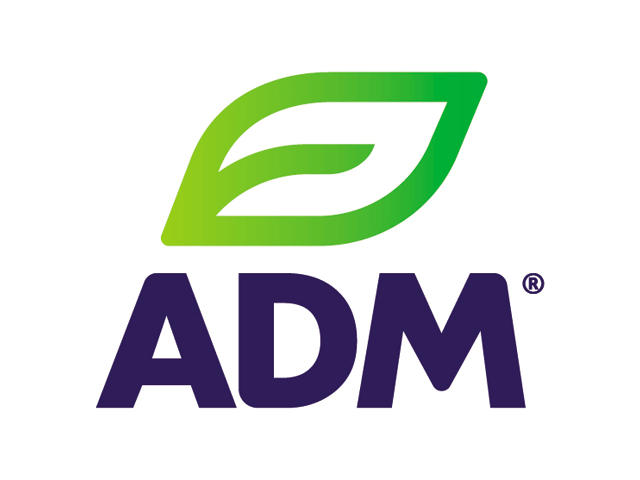Ethanol Price Manipulation Case Moves
Energy Trader AOT Holding AG Alleges Archer Daniels Midland Affected Prices
OMAHA (DTN) -- A class-action lawsuit alleging ethanol-market manipulation by Archer Daniels Midland will continue, after a federal court denied the company's motion to outright dismiss the case filed in September 2019.
In addition, the U.S. District Court for the Central District of Illinois ruled on May 22 that plaintiffs would qualify for monetary damages if successful in court.
The original lawsuit filed by AOT Holding AG alleged ADM manipulated the market at the Argo, Illinois, terminal by flooding the fuel terminal with lower-priced ethanol starting in November 2017 through March 2019.
The court order said the ethanol was alleged to have been "intentionally sold at artificially low prices in order to juice the profits on its outsized short positions in related ethanol derivatives."
A derivative is a financial security with a value that relies on an underlying asset or group of assets, or a benchmark. The derivative is a contract between two or more parties, and the derivative price comes from price fluctuations in the underlying asset.
ADM did not respond to DTN's request for comment.
The Argo terminal is the daily location for ethanol trading. The court said the specific trading in question occurred during the 30-minute "market-on-close," or MOC, window.
The trading window is considered crucial because the trading is used to set the daily Chicago benchmark price to determine the value of Chicago ethanol derivatives.
P[L1] D[0x0] M[300x250] OOP[F] ADUNIT[] T[]
That benchmark price is used to price and settle ethanol derivatives on the New York Mercantile Exchange and the Chicago Board of Trade.
AOT Holding AG alleges ADM "dramatically" shifted from buying to selling ethanol at Argo for the duration of the alleged manipulation period.
ADM allegedly continued to produce and sell at Argo, "even as prices fell and profits evaporated; sold at Argo for less than it could have received elsewhere; sold at prices below its variable cost of production; and priced ethanol so aggressively during the MOC window that it captured 90% of all sales influencing the Chicago Benchmark Price, despite having only 10% share of the United States ethanol market," according to the order.
"At the same time, ADM orchestrated a scheme wherein it took massive 'short' positions in ethanol derivatives, betting that the price of ethanol would decline further. To make sure that these derivative speculations would be extremely profitable, plaintiff alleges that ADM intentionally manipulated the price of ethanol downward through its actions at the Argo terminal."
AOT Holding AG alleges the action caused hundreds of millions of dollars in damages to entities that trade in ethanol derivatives.
ADM is one of the largest ethanol producers in the country, with an annual production capacity of 1.69 billion gallons produced at eight plants in Nebraska, Iowa, Minnesota and Illinois.
"In late 2017, facing already low margins on its ethanol sales due to a supply glut, ADM tried but failed to sell three of its ethanol facilities," the complaint said.
"Rather than closing or idling some of its ethanol mills, which ADM's competitors had already begun to do in response to low prices/margins, ADM chose to take a different tack. ADM placed huge bets through ethanol derivatives that the price of ethanol would decline further. To ensure that its derivatives bets would pay off handsomely, in November 2017, ADM began to aggressively sell ethanol during the MOC window by reducing prices and filling the lower-priced bids of various ethanol purchasers in these critical 30 minutes of daily trading.
"On its face, ADM's behavior appeared economically irrational because it chiseled away at ADM's ethanol profit margins and even drove prices below ADM's variable cost of production."
The complaint said ADM's competitors were "largely unwilling" to sell at low prices because the company and its competitors could sell ethanol at higher prices at other terminals.
"The intended and actual effect of ADM's aggressive pricing and filling of lower-priced bids during the MOC window was to manipulate the Platts benchmark price downward," the lawsuit said.
The downward price push of physical ethanol prices at Argo," the lawsuit alleges, "artificially increased the value of ADM's massive short positions in ethanol derivatives based on those same prices -- thus allowing ADM's ethanol group to reap outsized profits despite low or negative margins on physical ethanol sales."
Prior to November 2017, when ethanol prices and profit margins were higher, the lawsuit said ADM was "one of the largest buyers" of ethanol at the Argo terminal.
"Starting in November 2017 and continuing through at least March 29, 2019, ADM was only a seller during the MOC window, and never a buyer," the lawsuit said.
Todd Neeley can be reached at todd.neeley@dtn.com
Follow him on Twitter @toddneeleyDTN
(c) Copyright 2020 DTN, LLC. All rights reserved.




